I cloned my project. Bundled with "bundle install", then run "rake db:migrate". I am getting this error: (when I run the rails server and open my browser to localhost:3000) "Migrations are pending; run 'bin/rake db:migrate RAILS_ENV=development' to resolve this issue."
I checked all migrations one by one and all were executed without errors. Also no errors were shown after the execution of "rake db:migrate".
This is what I see when I execute "rake db:migrate:status"
I am on development environment. Please let me know if you need any other information.
I also tried "bundle exec rake db:migrate", and "bundle exec rake db:migrate:reset" as "burninggramma" suggested.
Any clues what causes the error?
